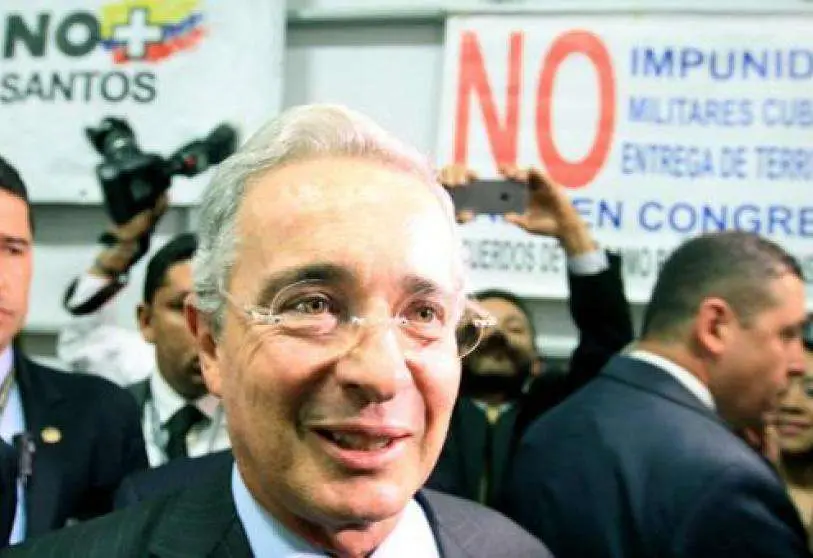Álvaro Uribe: the old country and the Cornwall Consensus

Nineteen years ago, Colombia's former president, Álvaro Uribe Vélez, was a man who looked fiery, outspoken and bravura. Almost two decades later, he looks pachydermic, tired, burdened by criminal proceedings for his links to paramilitarism and drug trafficking, and largely out of touch with changes in global politics. The message he sends is that he is frozen in the Colombian micro-politics of the Cold War world, in an anachronistic struggle against socialism. He remains trapped in the struggle against the former FARC guerrillas, despite the fact that they demobilised, handed in their weapons, and signed the peace agreement, and continues to cling to denialism, ignoring the peace agreement and fomenting fear and terror with the word socialism.
Uribe and his followers represent the old country, clinging to a struggle against any hint of change in the structure of the state and the country's neoliberal economic model. They symbolise a feudalism that resists the democratisation of land ownership and the changing political and economic currents of thought in modern times. Their political strategy remains the same of exploiting the fear of socialism, which has allowed them to control power for two decades. A power similar in some ways to the one controlled by the former president, Rafael Núñez, in the last decades of the 19th century.
Uribe and his followers continue to stick to the same recipe as if Colombian society is not evolving, repeating the same discourse of two decades ago. Stuck in the anachronistic ideological divisions of left and right when in the political and economic disputes of the global powers such ideological divisions are no longer relevant. In the new world order there is no power whose priority is the expansion of socialism. Even China, which is the main power with a socialist political system, does not base its imperial expansion on the spread of socialism. What they apply in their foreign policy and bilateral relations is pure capitalism.
Uribe and his people are stuck in the past, while the world is evolving towards new horizons and the ideological rivalries of left and right between the powers have become a thing of the past. Therefore, Western powers are taking steps to change the policies of the Washington consensus imposed by the governments of Ronald Reagan and Margaret Thatcher for a new consensus, whose battleground will be the green economy.
The neo-liberal economic model of the Washington consensus that has brought ruin to millions of people in the world and shot up the poverty and inequality rates in the world and further opened the gap between the developed world and the poor world seeks to bury it.
And Uribe and his party continue to talk about the dangers of a socialism that in practice does not exist, given that the world is evolving towards other political changes. Once again, the current US and British governments are pushing for a new consensus to control the world, centred on the development of a green agenda for clean energy and against fossil fuels. Uribe, his supporters, and allies continue to talk about the dangers of Cold War Stalinist and Maoist socialism.
When the green economy is the new religion of Western power, a hypocritical way of shaking off its imperial declines and seeking to stop the swing of the pendulum of global power from West to East with the re-emergence of former empires such as China, Russia, India, Iran and Turkey in control of global power. The first two powers: China and Russia are decades ahead of them in advances in the control of new technologies and whoever controls the new technologies will hold the key to world control. That is why, at the last G7 summit, they set up a panel of experts to draw up the new Cornwall Consensus, which replaces the old Washington Consensus.
This will guide the new world order for the Western powers, and they have called it the fourth industrial revolution of the green economy, based on seven priorities in the development policies they will apply in the coming decades. Its central focus is on fossil fuel substitution, climate change and clean energy. The Cornwall consensus encapsulates the strategic and geopolitical interests of the declining Western powers to confront the rise of the growing powers of China, India, and Russia.
@j15mosquera

